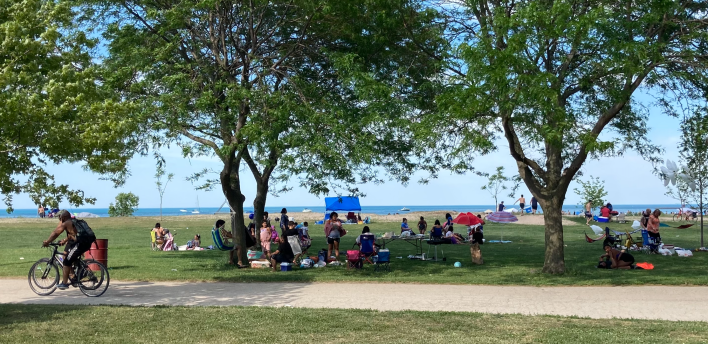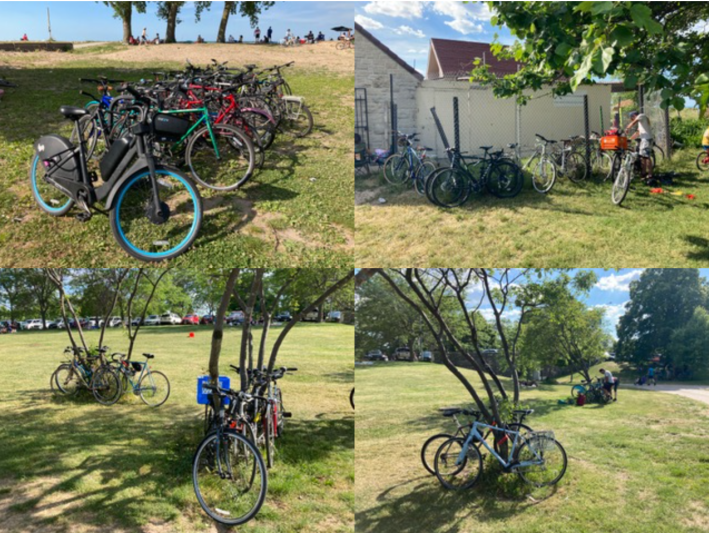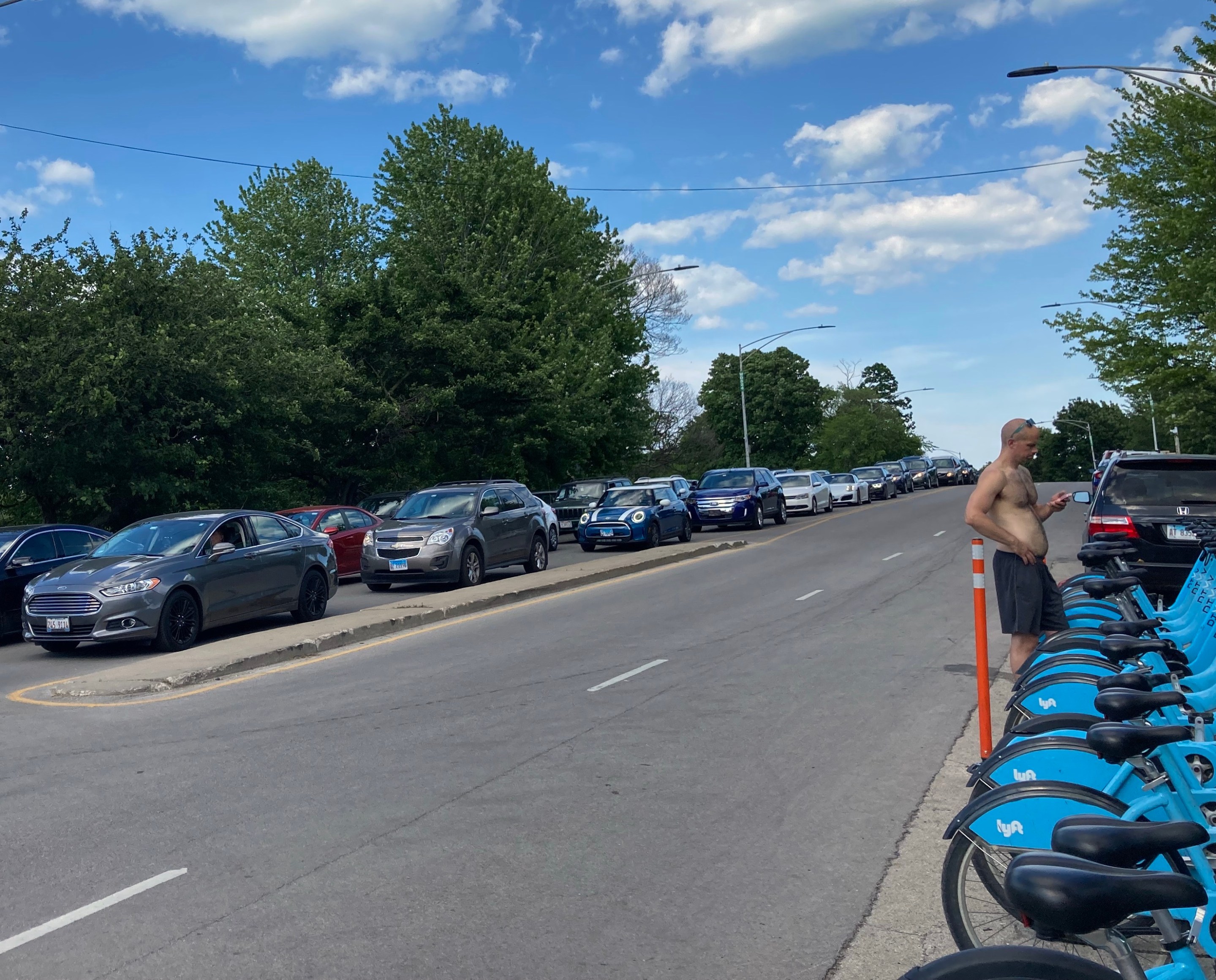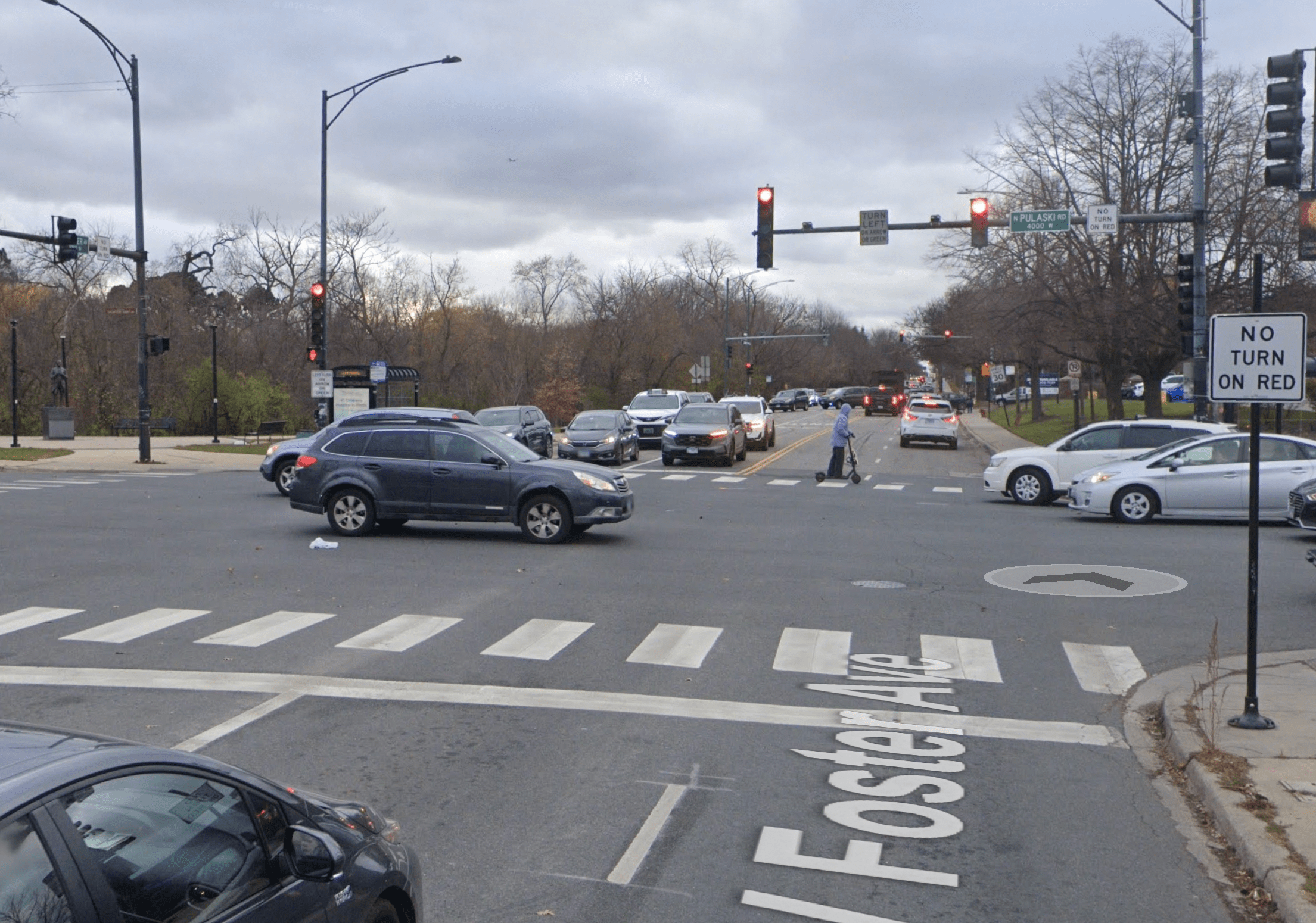Back in March when the city announced plans to install parking meters on some streets at Montrose Harbor, one of only two major Chicago beaches where the parking wasn't metered, there was a massive backlash. Everyone from Sun-Times columnist Mark Brown to the Chicago Area Runner's Association argued that making driving to the shore a little less convenient represented a big social justice issue.
"Having to pay $2.25 an hour to park is going to keep some regulars from coming — like the families from all over the city who bring their kids for picnics near the beach," argued Brown in one of two, count 'em, two columns he wrote, dedicating his bully pulpit to the righteous cause of free car parking. "The picnickers reflect all the racial and ethnic hues of Chicago’s neighborhoods, many of them first-generation immigrants taking advantage of one of the last great free options for family fun in Chicago." He urged his readers to "speak up now and let City Hall know it’s unacceptable."
CARA echoed this sentiment in a petition against the meters that garnered a staggering 12,250 signatures. “The addition of parking meters places a barrier to enjoy our parks,” the petition stated. “These meters are not just a new tax on the park’s North Side neighbors. It’s a barrier to diverse Chicagoans from all over the city who have long come to Montrose Harbor.”
That's despite the fact that CARA's own calculations showed that total travel expenses for a group of four driving to the beach and using a metered parking space for four hours would be $3.40 cheaper than those for the same group taking the CTA. Under the “inequitable” parking meter scenario, people who can afford to drive would still pay almost 20 percent less than those who can’t.

Despite all the pushback, the city went ahead with the plan. Of course, money was the main motivator. City officials say the new meters could help Chicago turn a profit for the first time in the history of our horrible 75-year parking contract, Block Club recently reported.
But Metered parking also had the potential to encourage those who can walk, bike, or ride the bus to the beach to do so, and the increased parking turnover would make it easier for those who need to or want to drive to find a space.
However, judging from what Montrose was like on late Saturday afternoon during last weekend's hot spell, Brown and CARA can rest assured that the new meters, which were installed last month, aren't scaring large numbers of people away from the beach. In fairness, that was probably due in part to latent demand after Mayor Lori Lightfoot kept the beaches closed all last year as a pandemic safety strategy (but allowed beach bars to open.) But my perception was that there was the same awesome ethnically and economically diverse picnicking, sunbathing, and swimming scene as usual, and others had the same impression. If anything, there were more people at Montrose than usual.

The downside was that there also seemed to be more people driving to the beach than ever, obviously undeterred by metered parking. Heading there on Wilson, I saw a seemingly endless line of drivers stuck in traffic. There were so many cars that police officers had shut the gate to prevent people from driving into the park. And things were so bad on Sunday that police closed the Montrose offramp of Lake Shore Drive.
The Montrose exit was shut down because so many people are trying to get to the beach https://t.co/81PfRQmozN
— Steven (@stevevance) June 6, 2021
On the bright side, it also appeared that more people had biked to the beach on Saturday than ever before. The 12-bike capacity rack by the Wilson comfort station was completely overflowing with bikes, as were all the nearby skinny trees.

That's a good problem to have. But the city really needs to install more bike parking, not to mention increasing CTA bus service, so that more people, especially those who can't afford cars, can easily get to the beach without driving. The latter is an actual social justice issue I'd like to see Mark Brown and CARA make some noise about.




